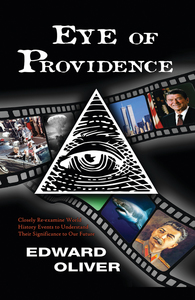
The record of the Eighteenth Georgia Volunteer Infantry Regiment can withstand a critical comparison with any regiment in the American Civil War, North or South. As warriors, the men of the Eighteenth Georgia could stand shoulder to shoulder with soldiers of any storied unit in US military history. In the three years, eleven months, and twenty days of the regiment's existence, the stubborn men in the ranks trained, marched, and fought from Camp McDonald (outside Atlanta) to Appomattox, burying their dead on battlefields in Virginia, Tennessee, Maryland, and Pennsylvania. The regiment's casualty rate was astounding, even by Civil War standards. By war's end, the butcher's bill tallied 162 men killed or mortally wounded in combat, 221 killed in accidents or lost to diseases, 340 wounded, 305 captured (most of whom were sent to Northern prisoner-of-war camps), and four missing and presumed dead. Only 55 men were left to stack arms when the Army of Northern Virginia was formally surrendered on April 12, 1865. The regiment's journey from Camp McDonald to Appomattox was paved with stunning victories, stinging defeats, and unfathomable hardships. Vermin, poor (or no) food, inadequate clothing and equipment, and lack of sleep sapped the men's strength and destroyed their health-but not their discipline, morale, or aggressiveness. Most times cheerfully but sometimes stoically, the Georgians endured the physical and mental pains of destitution, disease, and death as they followed the regimental battle flag from Georgia to Virginia, North Carolina, Maryland, Pennsylvania, Tennessee, and West Virginia. They logged more than five thousand miles, zigzagging across mountains, hills, streams, rivers, swamps, farmlands, and woodlands. This marching and countermarching always portended more fighting and dying. The regiment participated or came under fire in forty skirmishes, engagements, battles, and other operations, suffering casualties in twenty-one of them. The Eighteenth Georgia was prominent in eight of twelve battles where Union forces suffered the most casualties during the war: Gettysburg, Spotsylvania, the Wilderness, Chancellorsville, Second Manassas, Cold Harbor, Fredericksburg, and Sharpsburg. The Georgians were on the field for two of the other major battles-Chickamauga and Petersburg-but were not engaged. The only two major battles they missed were Murfreesboro and Shiloh. Yet miles covered, battles fought, and blood shed are not the sole, or even the most decisive, factors that constitute greatness in a military unit. Some units may fight in obscurity, while others appear at a decisive time and place on the battlefield. Most regiments in Lee's army distinguished themselves on one battlefield or another. Some were prominent on multiple battlefields, thus earning the undying admiration and respect of Southern people. But when it came to helping "Bobby" Lee win a decisive victory or stave off a disastrous defeat, no regiment was more conspicuous than the Eighteenth Georgia. Its name is forever inscribed on the scroll of Confederate regiments that were in the right place, at the right time, and in the right formation to make a significant difference during the battles of Gaines's Mill, Second Manassas, South Mountain, Sharpsburg, Fredericksburg, Chancellorsville and Salem Church, Gettysburg, Wilderness, Spotsylvania Court House, and Petersburg. Through recollections of his own great-grandfather and from other firsthand accounts, Brigadier General Jerry C. McAbee, USMC (ret.), takes us on the journey of the Civil War soldier. We follow the decision making and strategy that led to the end of the war. We understand the mentality of battle-weary men following the directions of a desperate leadership. And we see the side of the Civil War often overlooked by history. This is the true story of a regiment of stubborn men from Georgia.

Closely Re-examine World History Events to Understand Their Significance to Our Future,
